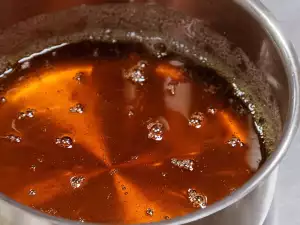Each tea has beneficial substances contained in it and therefore, each tea has benefits for our health. Black tea is extremely good for our health. It has the power to purify our body, to strengthen the immune system and it helps the cardiovascular system.
Black tea contains caffeine, but whether it can harm the heart or blood pressure - we'll find out now. There are data according to which people over 30 years of age or more precisely 30-40% of them have high blood pressure, which leads to the need of a certain therapy to normalize it.
Many studies show that when drinking black tea, it normalizes the blood pressure and blood sugar levels. It also significantly reduces the risk of cardiovascular disease.
Tea is recommended for consumption by people who have low blood pressure, because the effect of it lasts a long time. If you have high blood sugar levels, this can lead to cardiovascular disease.
In its composition, black tea includes various elements, some of which are:
- Caffeine - caffeine is a plant alkaloid, which stimulates our cardiovascular system;
- Bioflavonoids - they help strengthen the walls of our blood vessels, reduce their permeability and prevent tissue swelling;
- Tannins - they strengthen the myocardium, by increasing its contractility.
A document from the American Medical Association states, that drinking black tea is considered a means of normalizing blood pressure and improving the function of endothelial cells, which line the inside of blood vessels.
Black tea tastes bitter and slightly intrusive. If you try it for the first time, you will not be very pleasantly surprised, but if you sweeten it, you will like it. If you drink black tea regularly, it can reduce the number of platelets, which, in turn, reduces the risk of cardiovascular disease such as heart attack or stroke.
As we said, black tea contains caffeine, so if you have high blood pressure, you should be careful with its consumption. But in any case, black tea is a much better way to start your day off, than coffee.
There are studies, which show that this tea may not raise the blood pressure, if consumed with milk. According to Professor Jonathan Jogen, more and more in-depth research is needed to understand how black tea affects the blood pressure.



















Comments